 |
|
|
| View this newsletter online |
 |
Research School for Socio-Economic and
Natural Sciences of the Environment |
| SENSE e-News |
|
|
  |
Newsletter March 2022
25 February 2022 |
|
 |
| • |
“Introduction to Open Science – Concepts, benefits, and practices”, new course to be developed with SENSE funds ›› |
| • |
Risk assessment for microplastic within reach ›› |
| • |
Researchers’ recommendations for a sustainable plastic circular transition ›› |
| • |
Bacteria in groundwater can break down pesticides ›› |
| • |
Do forests lead to more or fewer clouds? It depends ›› |
| • |
Podcast Kamonashish Haldar: Circular Economy - Shaping the way forward? ›› |
| • |
SPLENDID opportunities for adaptation in challenging times ›› |
| • |
Grasping Sustainability, 7-11 March 2022 ›› |
| • |
A1 SENSE Introductory Course, 21-22 March 2022 ›› |
| • |
Speciation and Bioavailability of Metals, Organics and Nanoparticles, 13-17 June 2022 ›› |
| • |
Micropollutants in the water cycle, 20-24 June 2022 ›› |
| • |
Overview of PhD / postdoc courses March-April 2022 ›› |
| • |
Overview of recently announced PhD / postdoc courses ›› |
| • |
SENSE Symposium, 2 June 2022 ›› |
| • |
Nederlands Aardwetenschappelijk Congres (NAC), 5-6 September 2022 ›› |
| • |
Overview of upcoming events March ›› |
| • |
Overview of recently announced events ›› |
| • |
Overview of PhD graduations March 2022 ›› |
| • |
IPCC opens registration for the Government and Expert review of the Draft of Synthesis Report of the Sixth Assessment Report (deadline for registration: 13 March 2022) ›› |
| • |
A call for papers for the Earth System Governance Special Issue titled "The Governance of Biodiversity Recovery: From Global Targets to Sectoral Action" (deadline: 13 March 2022) ›› |
| • |
A call for papers for the “Water Journal” special issue titled "Water Management for Climate Smart Agriculture" (deadline: 15 March 2022) ›› |
| • |
Call National ThinkTank (deadline: 10 April 2022) ›› |
| • |
Call SENSE Course Development (deadline: 31 May 2022) ›› |
| • |
Overview job vacancies ›› |
|
|
|
 |
 |
 |
| Editorial |
 |
| Safe the date: SENSE Symposium on 2 June! |
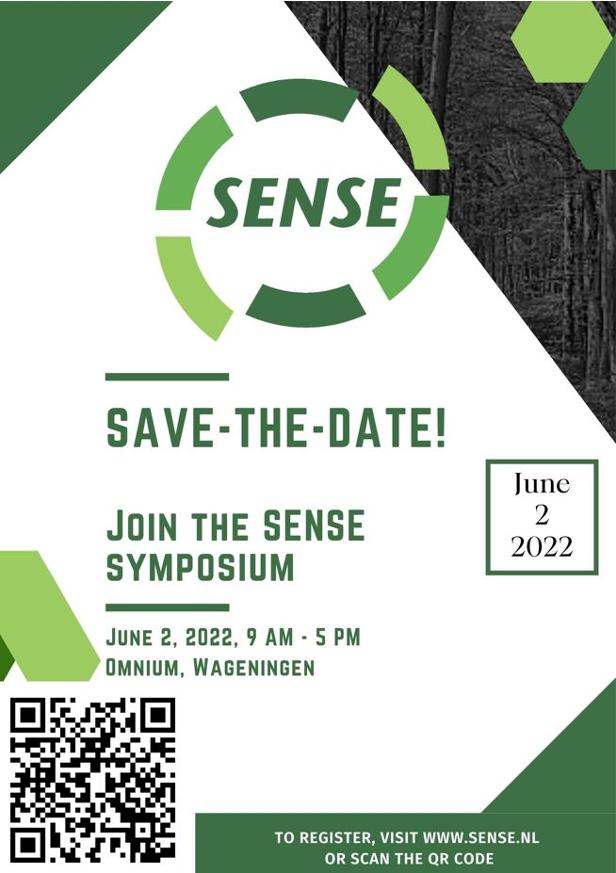 First of all we would like to draw your attention to the SENSE symposium on Thursday June 2nd, 2022, 9 AM - 5 PM. First of all we would like to draw your attention to the SENSE symposium on Thursday June 2nd, 2022, 9 AM - 5 PM.
The symposium features interactive and participant-driven unconference meetings to discuss various Socio-Economic and Natural Science research themes within SENSE. To present and discuss your research ideas or results, please submit a topic idea by April 22nd, 2022.
Guest speakers will also cover various themes in-depth, there will the opportunity to present posters, and we will round the day off with drinks and further, informal discussions. More information about the programme will follow.

Probably all of us heard about the latest #MeToo incidents in the Netherlands, in the Voice of Holland and in the national football club Ajax. A lot is been said, and attention is drawn to all organisations to reflect on the situation concerning unwanted behaviour.
Especially people who are in a dependency relationship to others are vulnerable with respect to unwanted behaviour, especially if the person they are dependent of has a lot of power and influence. This applies to many within SENSE, since there are many PhD candidates who function in an environment where they are supervised by scientists with a strong academic reputation. This might make it harder to stand up against the person who oversteps your personal boundaries or get the proper support, as this person might have an important scientific and organisational position.
That being said, I would like to share my personal thoughts on this topic with you.
A lot has been written and said about unwanted behaviour, but what exactly is the opposite? What is wanted behaviour? How does this differ in different circumstances? What are the grey zones? I think this is a discussion that involves all of us.
Also, everyone of us is a leader. Whether you are a senior staff member or a PhD candidate, you are likely to supervise others. And if not now, you will most likely have a leadership position in the future.
So maybe we should start to talk with each other about being and becoming a positive, respectful leader. What exactly does that involve? How can you become sensitive of your own blind spots and the boundaries of others? When we start talking about positive and respectful leadership, this becomes a topic that is relevant to all of us, not only the victims of unwanted behaviour.
Since we form the scientific community together, all of us can contribute to improving the academic culture. And we should not limit the discussion to sexually transgressive behaviour, but to positive and respectful behaviour in many different situations, including people of a different culture, skin-colour, gender, or sexual orientation than ourselves.
Please consider also to show leadership in situations where you suspect unwanted behaviour takes place.
- If you are the subject of unwanted behaviour: discuss it with the one who oversteps your boundaries, with friends or colleagues, or go to a confidential advisor.
- If you suspect someone else to experience unwanted behaviour: talk to them and ask if and how you could help.
- If you fear that you yourself may have overstepped a line: ask for feedback from the person concerned, or from someone else. Sincere apologies might work miracles, provided that the unwanted behaviour stops.
Marjolijn Dannenburg, Communication officer
|
|
|
 |
| SENSE News |
 |
| “Introduction to Open Science – Concepts, benefits, and practices”, new course to be developed with SENSE funds |
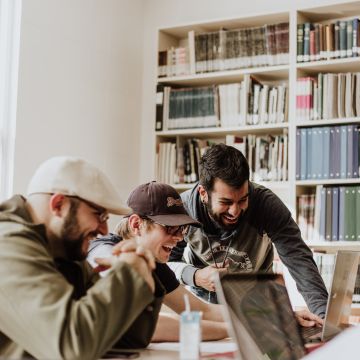 A key goal of science is to help society solve today’s wicked challenges and achieve the Sustainable Development Goals. Most of these challenges are urgent and require reliable, trustworthy, and high-quality research. The benefits of Open Science (OS) strongly overlap with these requirements since OS aims to make research more verifiable, transparent, and reusable. However, OS is currently not the norm in academia due to cultural and technical obstacles. This course aims to overcome these obstacles through a conceptual and a practical overview of OS principles. A key goal of science is to help society solve today’s wicked challenges and achieve the Sustainable Development Goals. Most of these challenges are urgent and require reliable, trustworthy, and high-quality research. The benefits of Open Science (OS) strongly overlap with these requirements since OS aims to make research more verifiable, transparent, and reusable. However, OS is currently not the norm in academia due to cultural and technical obstacles. This course aims to overcome these obstacles through a conceptual and a practical overview of OS principles. |
|
|
| Risk assessment for microplastic within reach |
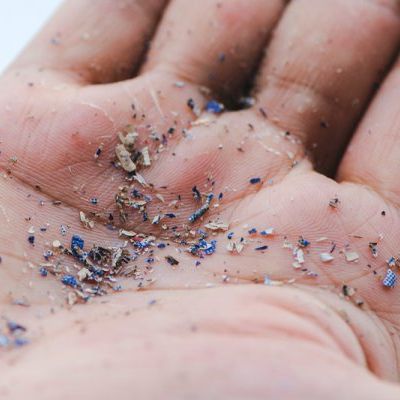 Microplastic particles in the environment and in our food and drinking water are extremely diverse and complex. This makes it difficult to determine the risks to humans and the environment. Researchers of Wageningen University & Research now provide the first mathematical framework to assess the risks of these particles. Microplastic particles in the environment and in our food and drinking water are extremely diverse and complex. This makes it difficult to determine the risks to humans and the environment. Researchers of Wageningen University & Research now provide the first mathematical framework to assess the risks of these particles. |
|
|
| Researchers’ recommendations for a sustainable plastic circular transition |
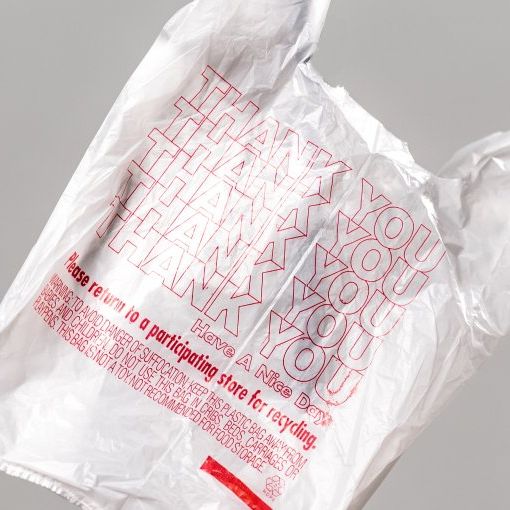 Dutch policy focuses too much on technological innovations and loses sight of the bigger picture of a sustainable future when it comes to plastic. That is what Utrecht University researchers found after analysing the transition to a sustainable circular plastics economy in the Netherlands. Current policy focuses on end of pipe solutions and technological innovations which, according to the researchers, will likely not reduce the human and environmental health impact of plastic production, consumption, and recovery. They give ten recommendations meant to integrate the full social, political and ecological implication of a circular future. These recommendations prioritise reducing virgin plastic consumption, establishing eco-design requirements, and promoting re-usable alternatives to plastics. Dutch policy focuses too much on technological innovations and loses sight of the bigger picture of a sustainable future when it comes to plastic. That is what Utrecht University researchers found after analysing the transition to a sustainable circular plastics economy in the Netherlands. Current policy focuses on end of pipe solutions and technological innovations which, according to the researchers, will likely not reduce the human and environmental health impact of plastic production, consumption, and recovery. They give ten recommendations meant to integrate the full social, political and ecological implication of a circular future. These recommendations prioritise reducing virgin plastic consumption, establishing eco-design requirements, and promoting re-usable alternatives to plastics. |
|
|
| Bacteria in groundwater can break down pesticides |
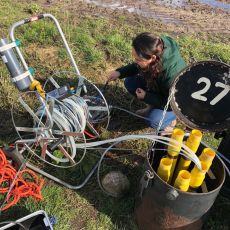 This is the outcome of Andres Aldas-Vargas’ (WUR) doctorate research. This is the outcome of Andres Aldas-Vargas’ (WUR) doctorate research.
The level of pesticides in Dutch groundwater is on the rise. Bad news, as two-thirds of our drinking water is derived from groundwater. ‘The concentrations are low, but we are increasingly better able to monitor pollutants in the measuring wells’, says co-supervisor Nora Sutton of the Environmental Technology group. ‘Water remains in the ground for an average of three decades, so we are measuring the future pollution. The water companies must purify these because our tap water is clean and safe.’. |
|
|
| Do forests lead to more or fewer clouds? It depends |
 Large-scale deforestation, forest restoration, forest fires, and droughts all have one thing in common: most research on these topics focuses on forest ecosystems' impact on carbon storage and release. Other effects of forests are less often explored, such as their effect on water cycles, climate, and daily weather. A recent study shows that local forest areas affect cloud formation differently in temperate and tropical regions. Large-scale deforestation, forest restoration, forest fires, and droughts all have one thing in common: most research on these topics focuses on forest ecosystems' impact on carbon storage and release. Other effects of forests are less often explored, such as their effect on water cycles, climate, and daily weather. A recent study shows that local forest areas affect cloud formation differently in temperate and tropical regions. |
|
|
| SENSE blogs and more |
 |
| Podcast Kamonashish Haldar: Circular Economy - Shaping the way forward? |

Dr. Kamonashish Haldar (WUR) speaks about 'Circular Economy', a model of production and consuption that involves sharing, leasing, refurbishing, and recycling of materials and products. This is not just an ethical choice - in the current scenario of scarce resources and environmental degradation, it also makes good business sense. |
|
|
| SPLENDID opportunities for adaptation in challenging times |
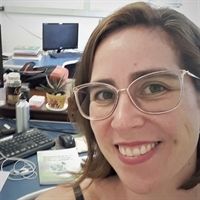
Dr Julia Camara de Assis shares her experience on the challenges faced on engaging in transdisciplinary research during the pandemic and some of the lessons learned. |
|
|
|
| Do you want to have your own blog on the SENSE website, or do you want to write a single blog post? Please contact marjolijn.dannenburg@wur.nl. |
|
|
|
 |
 |
|
 |
 |
| Upcoming courses and discussion groups |
 |
| Grasping Sustainability, 7-11 March 2022 |
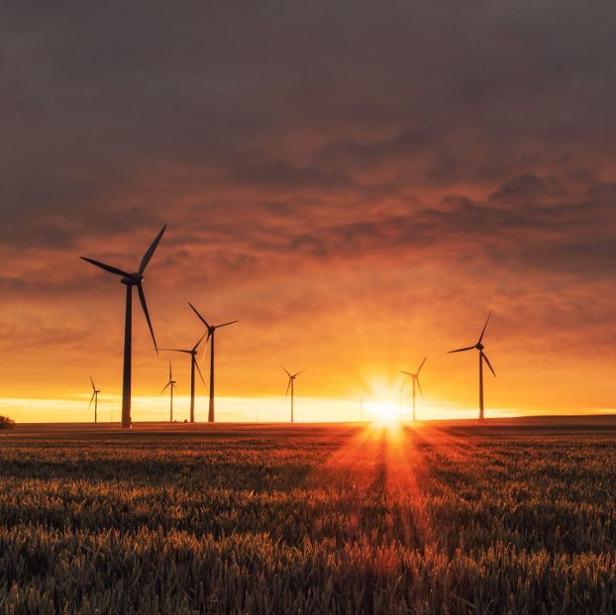 To date, many different scientific concepts and approaches of sustainability exist. What are the differences and what do they entail? What is your role as a scientist in achieving sustainable development? How can you apply sustainability in your own research? And in doing so, how can you deal with facts, uncertainty, values and opinions? To date, many different scientific concepts and approaches of sustainability exist. What are the differences and what do they entail? What is your role as a scientist in achieving sustainable development? How can you apply sustainability in your own research? And in doing so, how can you deal with facts, uncertainty, values and opinions?
This course will enable you to think about the ‘bigger picture’, grasp sustainability and to apply concepts and approaches to your own research, in a collaborative learning environment. |
|
|
| A1 SENSE Introductory Course, 21-22 March 2022 |
 This course brings together PhD candidates that have the ambition to work on environmental issues, and who have just started their journey within SENSE. This course brings together PhD candidates that have the ambition to work on environmental issues, and who have just started their journey within SENSE.
During the course, you will discuss the need for interdisciplinary research and start to think about what role you would like to play as a scientist in solving environmental issues. The course will also be part introduction to personal leadership, exploring what is important to you, and hence what broader skills and competencies you will want to develop during your PhD trajectory. And you will meet other PhD candidates with which you will share a lot of the same experiences with. |
|
|
| Speciation and Bioavailability of Metals, Organics and Nanoparticles, 13-17 June 2022 |
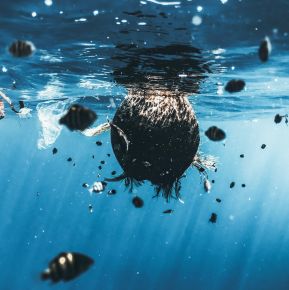 The course program will focus on the analytical and physical chemistry of metal ions in complexing aqueous environments and the bioavailabilities of different species. Due attention will also be given to the speciation and bioavailability of organic compounds. The course program will focus on the analytical and physical chemistry of metal ions in complexing aqueous environments and the bioavailabilities of different species. Due attention will also be given to the speciation and bioavailability of organic compounds.
Particular attention will be paid to the speciation and physicochemical characterization of nanoparticles, including plastic particles, as well as the bioavailability of nanoparticulate chemical species. |
|
|
| Micropollutants in the water cycle, 20-24 June 2022, Wageningen |
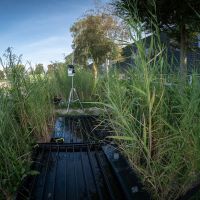 This course offers a comprehensive overview of the threats to water quality posed by micropollutants and a multidisciplinary approach to identify and solve this environmental problem. This course offers a comprehensive overview of the threats to water quality posed by micropollutants and a multidisciplinary approach to identify and solve this environmental problem.
This course is the first course to be developed with funding of the SENSE fund for the development of PhD courses. |
|
|
| Overview of PhD / postdoc courses March-April 2022 |
- Statistical Uncertainty Analysis of Dynamic Models
28 February - 4 March 22, Wageningen
- Research Methodology: From research question to research proposal
28 February - 18 March 2022, Hybrid or online
- Natural resources and Conflict: Violence, Resistance and the State
28 February - 9 March 2022, online
- Soil Biology Lab Skills Course for Assessing Soil Functions
28 February - 4 March 2022, Wageningen
- Introduction to R (NEW)
7-8 March 2022, online
- Anaerobic Wastewater Treatment
7-11 March 2022, Delft
- AMS Academy: Urban Living Lab Winter School 2022
7-11 March 2022, online
- WaterCampus Business Challenge
21-25 March 2022, Leeuwarden
- From topic to proposal: Getting started (NEW)
24 March - 12 May 2022, Wageningen
- Visual research methods (NEW)
28 March - 22 April 2022, Wageningen
- Biocatalysis and Protein Engineering
4-8 April 2022, Delft
- Making Change in Wildfire Management: Science Policy Interaction (NEW)
4-14 April 2022, online and Cyprus
- Linking Community and Ecosystem Dynamics
18-22 April 2022, Schiermonnikoog
- Introduction to R (NEW)
25-26 April 2022, Wageningen
|
|
|
| Overview of recently announced PhD / postdoc courses |
|
In case you are interested in either participating or teaching a course that is currently not in the programme, please do not hesitate and contact us with your suggestions. |
|
|
|
 |
 |
|
 |
 |
| Upcoming Events |
 |
| SENSE Symposium, 2 June 2022 |
 We would like to draw your attention to the SENSE symposium on Thursday June 2nd, 2022, 9 AM - 5 PM. We would like to draw your attention to the SENSE symposium on Thursday June 2nd, 2022, 9 AM - 5 PM.
The symposium features interactive and participant-driven unconference meetings to discuss various Socio-Economic and Natural Science research themes within SENSE. To present and discuss your research ideas or results, please submit a topic idea by April 22nd, 2022.
Guest speakers will also cover various themes in-depth, there will the opportunity to present posters, and we will round the day off with drinks and further, informal discussions. More information about the programme will follow. |
|
|
| Nederlands Aardwetenschappelijk Congres (NAC), 5-6 September 2022 |
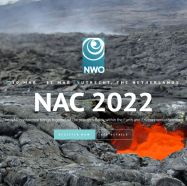 We are happy to announce that for the first time NAC will bring together researchers from the Earth and Environmental Sciences. We are happy to announce that for the first time NAC will bring together researchers from the Earth and Environmental Sciences.
The 18th edition of NAC (Nederlands Aardwetenschappelijk Congres) brings together the research fields within the Earth and Environmental Sciences. The event aims to continue to provide a true interdisciplinary forum for discussion and for young scientists to present their research results to a broad audience. The 18th edition will be a hybrid event. Attendants can participate, in-person and/or virtually. |
|
|
| Overview of upcoming events March 2022 |
|
|
|
|
| Overview of recently announced events |
|
|
|
|
| Upcoming PhD graduations |
 |
| Overview of PhD graduations March 2022 |
- Nur Hazimah Mohamed Nor
Microplastics' Journey into the Gut. Human exposure to microplastics and associated chemicals
2 March 2022, Wageningen University, Aquatic Ecology and Water Quality Management
- Lara Wöhler
An integrated assessment of pharmaceuticals in water systems
4 March 2022, University of Twente, Water Management Group
- Yke van der Veen
Analysis of per- and polyfluoralkyl substrates (PFASs) in outdoor wear
10 March 2022, VU University Amsterdam, Chemistry and Biology
- Rik de Vries
Characterizing bacteria involved in fouling of spiral wound membranes
11 March 2022, Wageningen University, Microbiology
- Miguel Angel Laverde Barajas
Improving satellite-based precipitation estimates: a spatiotemporal object-oriented approach to error analysis and correction
11 March 2022, IHE Delft, Hydroinformatics and Socio-Technical Innovation
- Harm-Jan Benninga
Soil moisture retrieval from Sentinel-1 data and value-added products for agriculture and water management
24 March 2022, University of Twente, Water Resources
- Felipe Lobos Roco
Evaporation in the Atacama Desert
29 March 2022, Wageningen University, Meteorology and Air Quality
- Biyao Han
Modulatory effects of divalent mercury and lead on the immune responses of waterfowl upon a viral-like immune challenge
29 March 2022, Wageningen University, Toxicology
|
|
|
|
 |
 |
|
 |
 |
| Calls |
 |
| IPCC opens registration for the Government and Expert review of the Draft of Synthesis Report of the Sixth Assessment Report (deadline for registration: 13 March 2022) |
| The Intergovernmental Panel on Climate Change (IPCC) has opened registration for the Government and Expert Review of the Draft of the Summary for Policymakers and longer report of the Sixth Assessment Synthesis Report. As of today, interested experts can register for participation in the review. The Government and Expert Review of the Synthesis Report of the Sixth Assessment Report will take place from 10 January to 20 March 2022. Registration of experts closes on 13 March 2022, one week before the end of the review. |
|
|
| A call for papers for the Earth System Governance Special Issue titled "The Governance of Biodiversity Recovery: From Global Targets to Sectoral Action" (deadline: 13 March 2022) |
| You are invited to contribute to an upcoming Special Issue of the Earth System Governance journal on The Governance of Biodiversity Recovery: From Global Targets to Sectoral Action. Hens Runhaar (Utrecht University, the Netherlands) and Yves Zinngrebe (Helmholtz Centre for Environmental Research, Germany) will serve as guest editors. |
|
|
| A call for papers for the “Water Journal” special issue titled "Water Management for Climate Smart Agriculture" (deadline: 15 March 2022) |
As you know, in agriculture water resources shortages have become an increasingly serious problem, particularly in arid and semi-arid regions due to climate change. Changes in rainfall and temperature patterns threatens the agricultural production and increase the vulnerability of people dependent on agriculture. In addition to that, up to 70% of global water consumptions go to the agriculture sector uses. Thus, improving water management especially for agriculture will support achieving the global goals of food and water security. Therefore, the Climate Smart Agriculture (CSA) approach is required to ensure the transforming and reorienting the agricultural systems to adapt to the effects of climate change and ensure smart use of the limited water available. In this light we find it important to share the latest insights on water management for climate smart agriculture.
We, therefore, would like to invite you to share your latest work on this topic in the form of a research or review paper for the special issue entitled "Water management for Climate Smart Agriculture" as part of the online MDPI Water journal.
Research papers are welcome on topics like: Water scarcity, Water conservation, Rain water harvesting, Water use efficiency, Irrigation (efficiency), Hydroponics, Salinity, Hydrological modelling. Attention to socio-economic, policy and gender related aspects are encouraged also. So, I invite you and your colleagues to submit your articles to this special issue.
Your submitted articles will provide future directions and guidelines for stakeholders like national and international agencies, policy makers, scientists and farmers to assess and solve the regional water and agriculture problems in arid and semi-arid regions.
Please let us know if you need any help. Thank you for your kind consideration.
Prof. Coen Ritsema*, Dr. Michel Riksen* and Dr. Karrar Mahdi* (karrar.mahdi@wur.nl)
*Wageningen University |
|
|
| Call National ThinkTank (deadline: 10 April 2022) |
Are you a Dutch masters or PhD student that directly wants to make societal impact after graduating? The National ThinkTank is recruiting new members for 2022! Together with twenty talented participants you will follow a 4 month programme – from the 15th of August till the 16th of December – in which you will do research into and find practical solutions for a current social issue. This year, the National ThinkTank will focus on the topic “biodiversity”. The global climate crisis emphasizes that this theme requires our attention. Think about soil fertility and crop pollination in agriculture, unclear policy from the Dutch government regarding nature, lack of awareness among policymakers, companies and citizens, and financial risks. While, with a proper approach, a green environment can contribute to social cohesion, and our physical and mental health.
Interested? Sign up before April 10, join one of the online information nights at March 15 or March 23 (these events will be held in Dutch) or check the website for more information. |
|
|
| Call SENSE Course Development (deadline: 31 May 2022) |
| To support the development of new courses and the collaboration between members, SENSE allocated an annual fund of 20.000 euros to support course development. Each proposal can apply for a maximum of 4.500 euro. Applications are open to all SENSE member institutes. |
|
|
| Job vacancies |
 |
| Overview of vacancies at SENSE partners |
- Lecturer Environmental Social Science, Wageningen University
Apply before 28 February 2022
- PhD candidate Towards autonomous and real-time UAV mapping, University of Twente
Apply before 1 March 2022
- PhD on the Physical Limits to Global Groundwater Use, Utrecht University
Apply before 1 March 2022
- PhD on Land Use Policy for Sustainable Agriculture, Wageningen University
Apply before 1 March 2022
- Assistant Professor Treating Micropollutants in Solid Phases (Tenure Track), Wageningen University
Apply before 2 March 2022
- PhD positions 1) Avoiding tipping of savanna ecosystems, and 2) Spatial patterns and multi-stability, Utrecht University
Apply before 2 March 2022
- Researcher position in Eco-hydrology, IHE Delft
Apply before 2 March 2022
- Postdoc position: Assessment of policy instruments for a carbon-neutral European Union, Wageningen University
Apply before 4 March 2022
- (Senior) Social Science Researcher, IHE Delft
Apply before 7 March 2022
- PhD position Academy of Hope, Utrecht University
Apply before 8 March 2022
- Modeller Environmental Behaviour in Soil and Water, Wageningen University
Apply before 8 March 2022
- PhD Cleaning the Ganges: Impact of agriculture on hydrological functioning of the Hindon river in a changing climate, Wageningen University
Apply before 8 March 2022
- Researcher (postdoc) on drought resilience engineering, University of Twente
Apply before 14 March 2022
- Post-doc position direct validation of greenhouse gas emission reduction measures in circular agriculture, Wageningen University
Apply before 15 March 2022
- Postdoc position on 'Data-model integration of (past) East Asian Monsoon climate dynamics', Utrecht University
Apply before 15 March 2022
- Project Manager Environmental Systems Analysis Group, Wageningen University
Apply before 15 March 2022
- PhD position just transitions to climate-resilient agriculture in India, Utrecht University
Apply before 16 March 2022
- Postdoc on Micropollutant Biodegradation, Wageningen University
Apply before 17 March 2022
- Appointment of Chair in Geographies of Urban Inequalities, Utrecht University
Apply before 18 March 2022
- Postdoc Evaluating Soil Hydrological Modelling at the Global Scale using Big Data, Wageningen University
Apply before 19 March 2022
- Two Assistant Professors in Innovation Studies, Utrecht University
Apply before 19 March 2022
- (Senior) Lecturer in Water Governance, IHE Delft
Apply before 11 April 2022
|
|
|
| Other vacancies in the SENSE field |
|
|
|
|
| More vacancies |
| During the month new vacancies are regularly posted on the SENSE vacancy page. |
|
|
|
 |
 |
|
 |
|